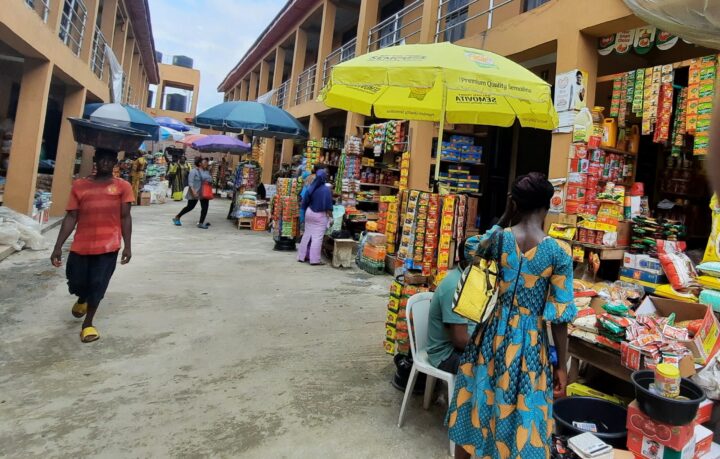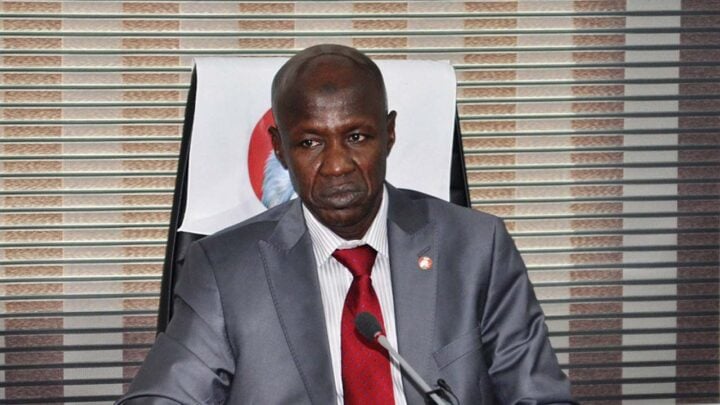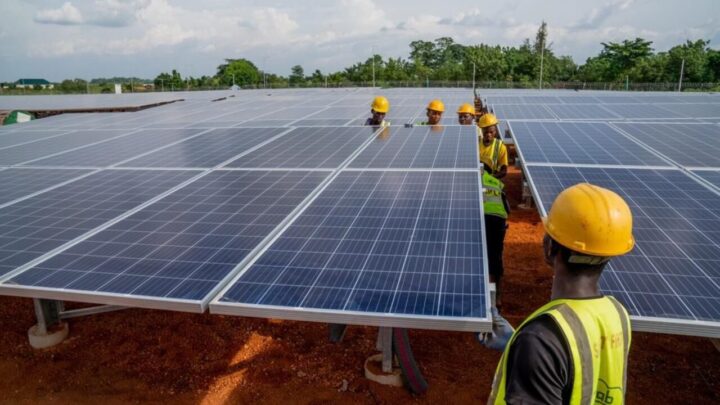Oke-Odo shopping mall, Lagos
The consumer price index (CPI), which measures the rate of change in prices of goods and services, surged to 19.64 percent in July 2022, up from 18.60 percent in the previous month.
The rate is the highest recorded since September 2005.
The National Bureau of Statistics (NBS) said this on Monday in its consumer price index (CPI) report for July 2022.
The figure is also 2.27 percent points higher compared to the rate recorded in July 2021, which was 17.38 percent.
Advertisement
The development means that the headline inflation rate increased in July 2022 compared to the same month in the previous year (July 2022).
According to the report, increases were recorded in all classifications of individual consumption according to purpose (COICOP) divisions that yielded the headline index.
“On a month-on-month basis, the Headline inflation rate in July 2022 was 1.817 %, which was 0.001% higher than the rate recorded in June 2022 (1.816 %),” the report reads.
Advertisement
“The percentage change in the average CPI for the twelve months period ending July 2022 over the average of the CPI for the previous twelve months period was 16.75%, showing a 0.46% increase compared to 16.30% recorded in July 2021.”
FOOD INFLATION HITS 22% AS PRICES OF BREAD SOAR
The report added that food inflation rose to 22.02 percent in July, an uptick compared to 20.60 percent in June.
This rise in the food index was caused by increases in prices of bread and cereals, food products, potatoes, yam and other tubers, meat, fish, oil, and fat.
Advertisement
“On a month-on-month basis, the food inflation rate in July was 2.04%, this was a 0.01% insignificant decline compared to the rate recorded in June 2022 (2.05%),” the report adds.
“This decline is attributed to a reduction in the prices of some food items like tubers, maize, garri, and vegetables.”
In analysing price movements, the report said Akwa Ibom, Ebonyi and Kogi states witnessed the highest prices.
Meanwhile, Jigawa, Kano and Borno recorded the slowest rise in inflation.
Advertisement
“In July 2022, all items’ inflation rate on a year-on-year basis was highest in Akwa Ibom (22.88%), Ebonyi (22.51%), Kogi (22.08%), while Jigawa (16.62%), Kaduna (17.04%) and Borno (18.04%) recorded the slowest rise in headline Year-on-Year inflation,” the report said.
“However, on a month-on-month basis, July 2022 recorded the highest increases in Adamawa (2.87%), Abuja (2.84%), Oyo (2.77%), while Bauchi (0.82%), Kano (0.83%) and Niger (1.03%) recorded the slowest rise on month-on-month inflation.”
Advertisement
RISING INFLATION TO PUSH MORE NIGERIANS INTO POVERTY
The Russia-Ukraine crisis continues to have devastating effects on the global economy, resulting in rising energy and food costs.
Advertisement
Affected the most are families in low-income countries who were already spending 42 percent of their household incomes on food, according to the United Nations Development Programme (UNDP).
In Nigeria, the World Bank estimated that inflation would likely push an additional one million into poverty by the end of 2022.
Advertisement
Add a comment






